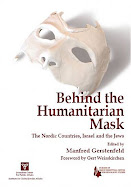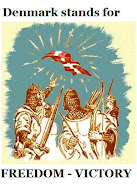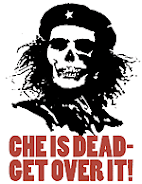 The pandoras box is open.
The pandoras box is open.
Kosovo will haunt Europe, it is not forgotten that WWI started in the Balkans and fresher in memory the Balkan war in the 1990's and NATO's punishment of the Serbs, a mistake without a doubt but the worst treason is the creation of Kosovo - This means that immigration can result in declaration of independence if the demographic group, such as muslims following the supremacist ideology of absolutism or Fascism at best 'if' that particular group gain a majority in a region or in a European country.
With the EU transforming into the Supranational totalitarian state the 1rst of January 2009 and is going to dictate foreign policy which amputates the European nation states from Democracy and the electorate - We are going to see blood spilled in Europe within the next decade.
From: Der Spiegel.
Kosovo is turning out to be a huge source of conflict, both in the Balkans and across Europe. Six EU member states are against recognizing Kosovo's independence, because they fear it could lead to problems with their own ethnic minorities.
It was probably the most important day of Kosovo Prime Minister Hashim Thaci's term in office. After issuing the new country's declaration of independence
But in the excitement of that historic moment, it probably didn't occur to him that it is sometimes a rather moody and divided family. Only a few hours later, Europe's lack of unanimity over recognizing Kosovo revealed what a heterogeneous entity Europe still is.
It also raises the question of whether such a divided Europe will ever be capable of conducting an effective joint common foreign policy. Serbia withdrew its ambassadors from Germany and Austria Wednesday, after Berlin and Vienna recognized Kosovo as an independent nation. Then, on Thursday, Serbian protesters rioted in Belgrade, setting fire to the US Embassy
While Denmark, Austria, France and Great Britain hold similar positions on Kosovo's independence, the EU countries that have minority conflicts of their own are opposed to Kosovo's secession from Serbia. They fear that their separatist groups could choose to emulate developments in the Balkans.
But what are these conflicts, and why has resolving them proved to be so difficult? SPIEGEL ONLINE profiles six countries that are refusing to toe the EU line.
Spain: The Basques and the Catalans
The Spanish central government in Madrid fears that Basque separatists could see Kosovo's declaration of independence as a precedent and as new fuel for their cause. Thus, it comes as no surprise that Spain was one of the first EU countries to announce that it would not recognize the independence of the small Serbian province.
In early 2008, the Basque terrorist organization ETA announced that it would make its future actions dependent on the situation in Kosovo. ETA's goal is to liberate the Basque region from what it calls Spanish "occupiers" and to establish an independent, socialist Basque nation. It was established in 1959 as a military resistance group against Spanish dictator Francisco Franco, who had banned the use of the Basque language and done everything in his power to suppress the Basque minority. There are 3 million Basques today, 2.5 million of them living in the northwest Spanish Basque region and the rest in the southwestern tip of France. The conflict, however, has transpired mainly on Spanish soil.
In 1979, after the end of the Franco dictatorship, the Basques were granted substantial autonomy. But this wasn't enough for ETA, which continues to fight for complete independence using bombings and intimidation campaigns as its preferred tools. The group's struggle has already claimed more than 800 lives.
Another minority group in Spain, the Catalans, also wants more than the autonomous status it was granted in 1978. About 7.2 million people live in the Catalan region in northeast Spain, which has the country's strongest economy. Catalonia has had autonomous status since the 18th century. It wasn't long ago that Josep-Lluís Carod-Rovira, the head of the Republican Left party and the deputy of regional President Jose Montilla, demanded a referendum on independence by 2014.
But the difference between the Basque country and Catalonia, on the one hand, and Kosovo, on the other, is that these regions, despite their continued efforts to gain independence, already enjoy substantial rights of autonomy.
In Madrid, the government's decision not to recognize Kosovo could also affect domestic politics -- general elections will take place in Spain on March 9.
Cyprus: The Turkish Cypriots
While Kosovo celebrated independence on Sunday, the same day brought new hope of reunification for Cyprus. In the Greek southern part of the island, President Tassos Papadopoulos, whose isolationist policy has seriously damaged relations with Turkish Cypriots in the north and with the European Union, was voted out of office. The candidates to succeed him have indicated a willingness to resume negotiations with the Turkish Cypriots, raising new hopes that reunification is possible.
The two ethnic groups on the sun-baked island have been separated since 1974. In 1983, the predominantly Turkish northern part of the island declared itself an independent state, the so-called Turkish Republic of Northern Cyprus. However Turkey is the only country that recognizes it.
predominantly Turkish northern part of the island declared itself an independent state, the so-called Turkish Republic of Northern Cyprus. However Turkey is the only country that recognizes it.
The Greek Cypriot southern part, where three-quarters of the island's roughly 1 million inhabitants live, is known as the Republic of Cyprus and has been an EU member since 2004. Traveling across the border has becoming easier since then, but there are still no direct contacts between the ethnic groups today. A barbed-wire fence marks the border between northern and southern Cyprus. United Nations troops monitor the line of demarcation.
In 2004, an attempt by then UN Secretary-General Kofi Annan to achieve reunification through a referendum failed when the majority Greek Cypriots voted against it. Turkey has a special interest in a unified Cyprus, because it would represent a milestone on the road to its own EU membership.
A runoff election next Sunday will decide who is to become the next president: Dimitris Christofias, the 61-year-old chairman of the reformed communist Akel party, or conservative Ioannis Kasoulidis, 59. While Christofias is one of the few Greek politicians who are respected in the north, voters see Kasoulidis, a member of the European parliament, as being more likely to improve the country's troubled relationship with the EU. But whoever wins the election, reuniting the conflicting parties will remain tremendously difficult. The Turkish Cypriots, who voted for reunification in 2004, are disappointed, because they feel that they were never rewarded for their willingness to compromise at the time.
This defiance could reinforce a tendency to emulate Kosovo and seek public recognition for independence for the north. The change in the administration could be coming at just the right point, in that it could help prevent this.
Romania: The Magyars in Székely Land
"The independence of Kosovo is a precedent that all EU countries with an ethnic minority should pursue," said Béla Markó, the chairman of the Democratic Union of Hungarians in Romania (UDMR).
His words only confirmed the fears of the Romanian government that their country's Hungarian minority could see the developments in Kosovo as a model for their own efforts to secure independence. In a special session, the Romanian parliament voted 357 to 27 to refuse to recognize an independent Kosovo. Romanian President Traian Basescu even characterized Kosovo's declaration of independence as illegal.
Romania, a country of 22 million, has minorities of 1.4 million ethnic Hungarians, or Magyars, and hundreds of thousands of Roma. The Hungarian minority is large enough to ensure that it regularly exceeds the 5 percent hurdle required to secure seats in parliamentary elections. In the first elections since Romania joined the EU in January 2007, the UDMR captured 6.2 percent of votes, securing it seats in the European Parliament.
The UDMR demands the removal of the term "unified country" from the Romanian constitution, campaigns for better educational facilities for ethnic Hungarians and wants the government to return Hungarian church treasures that were confiscated in 1918.
A more radical arm of the UDMR, the Hungarian Citizens' Union, which formed in 2004, is pushing for closer relations with Hungary and autonomy for Székely Land, a region in eastern Transylvania home to about 700,000 Hungarians. The territory is the cultural heartland for Romania's Magyars; in some towns, more than 90 percent of residents speak Hungarian. Székely Land was once an autonomous region, between 1952 and 1968, and parts of Transylvania belonged to Hungary until 1920.
But even if the Hungarian minority is now pushing even harder for separation, the fact that 90 percent of the Romanian parliament voted not to recognize Kosovo strongly suggests that it also opposes an autonomous territory in Transylvania.
Bulgaria: The Muslim Pomaks
Even before Kosovo declared independence, Bulgarian President Georgy Parvanov made one thing clear: Without a unified stance within the EU, his country would not recognize Kosovo's independence. Only if it could be guaranteed that human rights would be protected in the new Balkan nation and the Ahtisaari plan would be implemented, would Bulgaria consider establishing diplomatic relations with Kosovo, Parvanov said.
Parvanov's hesitation has a lot to do with the situation in his own country. By seceding from Serbia, Kosovo and its ethnic Albanian majority could encourage Bulgaria's Turkish minority to do the same. About 700,000 Turks live in Bulgaria, and they even form a majority in many cities and regions in the country's north.
In southern Bulgaria there are about 200,000 Muslim Pomaks of Slavic origin, who are represented in the Bulgarian parliament by the Movement for Rights and Freedoms party -- and yet they are not even recognized as an ethnic minority in the Bulgarian constitution. After many years of oppression and displacement -- most recently under communist rule -- many have immigrated to Turkey, while those left behind often live in abject poverty.
Even before Bulgaria joined the EU, there were efforts to grant more rights to the minority. One minority group has long called for introducing Turkish as a second official language and establishing a Turkish national university.
Could these demands turn into violence? Bulgarian Foreign Minister Ivailo Kalfin has warned against the threat of a rise in separatist groups, although he was referring to the entire Balkan region. Kosovo's independence, he said, would destabilize the situation in the region and could trigger a return to violence. Of course, such violence would also affect Bulgaria, as an immediate neighbor.
But other motives could also be behind the Bulgarian government's hesitation on Kosovo. Because Russia already made it clear that it would not recognize Kosovo's independence, the Bulgarian president was eager to avoid receiving a slap in the face from the "heavy hand of the Kremlin," as the Bulgarian paper Dnevnik put it.
Greece: The Turks of Western Thrace
Dora Bakoyannis, the Greek foreign minister, has also warned that Kosovo could become a "precedent" for Europe, and that its declaration of independence could send a signal to ethnic minorities in many European countries. If the European Union recognizes the secession of one ethnic group, Bakoyannis argued, perhaps it would have to do so repeatedly in the future.
Until the First Balkan War of 1912-1913, the region of Western Thrace in northeastern Greece was part of the Ottoman Empire, but most of it was under Bulgarian control. Following failed efforts to install a Provisional Government of Western Thrace, the region went to Bulgaria in 1913 -- but not for long. After World War I, the balance of power shifted again and Western Thrace was awarded to the Entente powers of Britain, France and Russia. Under the Treaty of Sèvres, the region was finally ceded to Greece in 1920.
But what happened to the mainly Turkish-speaking inhabitants of Western Thrace? They were granted special minority rights under the Treaty of Lausanne, signed three years later. As a result, lessons in Thracian schools are still conducted in Turkish, and the enclave's residents are under special protection. Despite these special rights, there are tensions in the region, and the Thracian Turks have become a popular diplomatic pawn in negotiations with Istanbul.
Even if the secession of Kosovo is not as likely to causes tensions in their own country, the Greeks view the Balkans with concern. As a direct neighbor, they too would be affected by a re-ignited conflict.
Slovakia: The Hungarian Minority
For years, Slovak populists have raged against Hungarian-speaking Slovaks in their country. Chief among them is Ján Slota, the leader of the Slovak National Party (SNS), who, with his racist remarks about the Hungarian minority, has managed to become one of the country's most popular politicians. Slota has a fondness for spouting polarizing statements like: "The Hungarians are a cancer in the body of the Slovak nation."
Ethnic Hungarians represent about 10 percent of the Slovak population, living predominantly in the country's south. The unofficial border between ethnic Slovaks and Hungarians, which still exists to some extent today, was pushed northward in the 16th and 17th centuries when the Turks occupied what is now Hungary. At the time, many Hungarians moved to the cities of Bratislava, Trnava, Kosice and Krupina.
The Party of the Hungarian Coalition represents the Hungarians politically. Until a change of government in 2006, the party was represented in the government. New tensions have arisen since it lost power.
On the whole, the ethnic groups in Slovakia, including many Roma, live in relative peace with one another. Nevertheless, disputes flare up periodically. Education has been one of the bones of contention. With its plan to print only the Slovak names of cities and towns in schoolbooks, the Slovak coalition government of the leftist populist Smer-Social Democrats, the nationalist SNS and the populist Movement for a Democratic Slovakia met with severe criticism from Hungarians.
Now Slovakia fears that its Hungarian minority could rebel once again. Kosovo could spark renewed efforts to secure independence by Slovakia's Hungarian population -- or even encourage it to push for a union with Hungary to the south.
































No comments:
Post a Comment